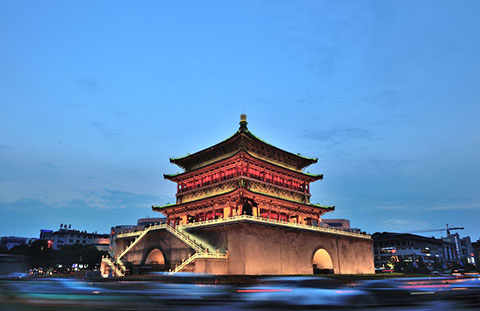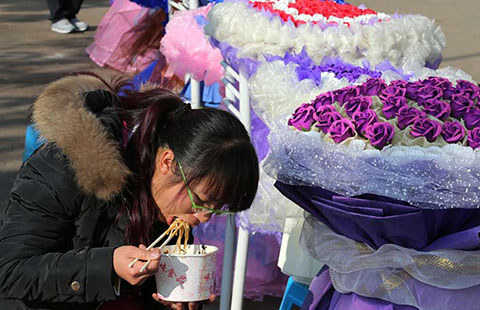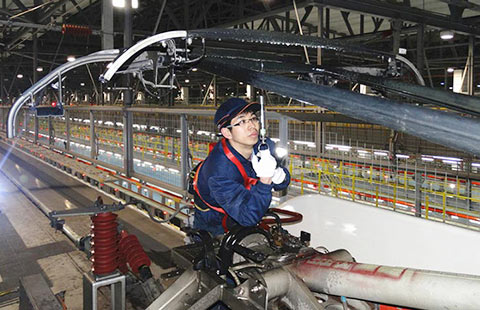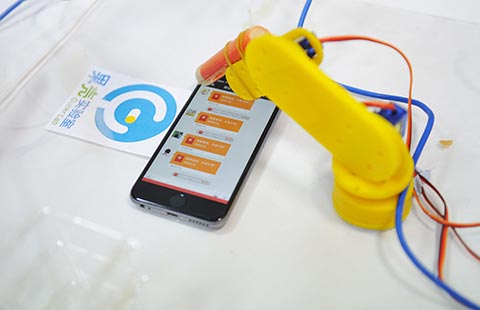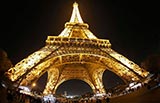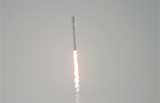Chinese companies boost operations in Egypt
By Hou Liqiang in Suez,Egypt (China Daily) Updated: 2016-02-15 08:11
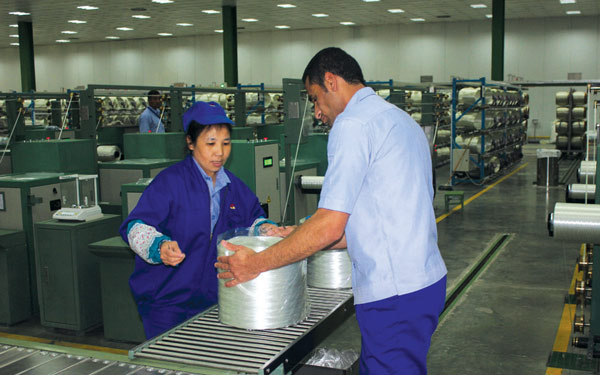 |
|
Jushi Egypt workers on a production line in the China-Egypt Suez Economic and Trade Cooperation Zone. It has an annual output capacity of 80,000 metric tons.[Photo provided to China Daily] |
The move is part of efforts to expand into other North African markets and further south. Egypt has the highest per capital GDP in Africa, and its auto market is larger than that of many nations on the continent.
The company has continued selling its cars in Egypt, and has sold about 30,000 since 2009, mostly imports from China, said Zhang Xuecheng, managing director of Brilliance Bavarian Auto, a joint venture of Brilliance and Bavarian Auto Group.
The Egypt facility's output capacity will initially be 10,000, increasing to 30,000 in five to 10 years, he says, adding that, as spare parts are limited in Egypt, the company also plans to bring some suppliers to the country to reduce costs.
Zhang said the decision to restart the assembly line was made based on two years of market research and because Egypt is an important part of the Belt and Road Initiative.
Guangzhou Dayun Motorcycle Co Ltd purchased 200,000 square meters in the Suez Economic and Trade Cooperation Zone on Dec 3, said Shao Yuebo, head of product research and development at TEDA SEZone Development Co, which runs the zone.
The Chinese company will invest $78 million to build a plant that can make 500,000 bikes a year, he said. "The project will provide more than 600 jobs, stimulate development of the motorcycle supply chain, contribute tax revenue and promote industrial technology in Egypt."
China Glass Holdings Ltd is also considering investing $20 million in the zone. The project would create 400 jobs directly and 2,000 indirectly, and generate $70 million a year in foreign exchange through exports, Shao said.
If it goes ahead, the plant "will promote upstream and downstream industries (in the glass industry) such as mining, energy, hydroelectricity, logistics and glass processing," he said.
However, Chinese companies face challenges in Egypt. Although the North African nation has promised rebates for exporters, it is not easy to get them. Jushi Egypt, for example, has only managed to get rebates on two deals, receiving about 70,000 Egyptian pounds, Yang said.
- Chinese companies boost operations in Egypt
- From farm to dining table, food takes Web route to success
- Investors anxious as markets reopen
- Chinese buy nearly half of world's luxury products
- Online sales get Spring Festival boost
- Changing women help generate world's third largest beauty market
- World has fun buying Chinese stuff in February
- Top 10 most difficult cities in China to get a taxi
